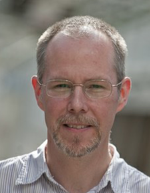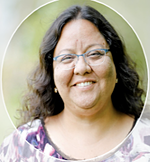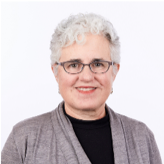This webinar is part of a series organized by CHE and the Boston University Superfund Research Program (BUSRP). Learn more about the CHE-BUSRP Partnership.
Community and backyard gardens created in residential areas provide people with opportunities to improve the overall quality of their lives. Community gardens provide numerous health benefits, including improved access to nutritious food, increased physical activity and improved mental health, and can promote social health and community cohesion. These gardens are often located on properties with decades of history resulting in contamination of soils or soils of poor quality for growing food. Understanding the properties of soils, the presence of toxicants in the soil and improvements that can be made can improve the health of the soils, and by extension, the health of people growing the food. This webinar will focus on steps to take to understand the soils in your garden, interpretation of test results and best practices for current and future gardeners that are practical, timely, cost effective and easily implemented, while maximally protecting public health. It will address the issue of toxicants such as PFAS in biosolids/compost and include information on growing food in Rust Belt cities.
 Patrick Drohan, PhD, is an Associate Professor of Pedology/Soil Science in the Department of Ecosystem Science and Management, Pennsylvania State University. His research examines people’s use of landscapes and the accompanying changes in soil function across the larger ecosystem the soil supports. He applies field-based, laboratory, geophysical and digital soil mapping techniques in arid, wetland, forested, and tropical systems. Via evaluation of the soil system, and desires of communities living within those environments, his group has supported agronomic production of cacao and other commodities in Morocco, Peru, Colombia, and Trinidad and Tobago. He has helped urban communities understand how to take advantage of soils for food production and green infrastructure development. Nationally and internationally, he has helped communities develop site and decision-making assessments for urban land use and ecological risk models and evaluated heavy metal pollution legacies. Dr. Drohan has taught over 25 different courses in the natural and physical sciences and currently teaches courses focused on urban soils, soil genesis and geomorphology, and study abroad courses in Europe tied to land ownership and soil/land management through history. He serves as a soil science advisor on several Pennsylvania state government panels, leads the Pennsylvania Agricultural Resilience Network (parn.psu.edu), and is an Associate Editor for Soil Use and Management.
Patrick Drohan, PhD, is an Associate Professor of Pedology/Soil Science in the Department of Ecosystem Science and Management, Pennsylvania State University. His research examines people’s use of landscapes and the accompanying changes in soil function across the larger ecosystem the soil supports. He applies field-based, laboratory, geophysical and digital soil mapping techniques in arid, wetland, forested, and tropical systems. Via evaluation of the soil system, and desires of communities living within those environments, his group has supported agronomic production of cacao and other commodities in Morocco, Peru, Colombia, and Trinidad and Tobago. He has helped urban communities understand how to take advantage of soils for food production and green infrastructure development. Nationally and internationally, he has helped communities develop site and decision-making assessments for urban land use and ecological risk models and evaluated heavy metal pollution legacies. Dr. Drohan has taught over 25 different courses in the natural and physical sciences and currently teaches courses focused on urban soils, soil genesis and geomorphology, and study abroad courses in Europe tied to land ownership and soil/land management through history. He serves as a soil science advisor on several Pennsylvania state government panels, leads the Pennsylvania Agricultural Resilience Network (parn.psu.edu), and is an Associate Editor for Soil Use and Management.
Dr. Drohan works closely with John Spargo, PhD, soil scientist who is the Director of the Penn State Agricultural Analytical Services Laboratory.
 Vidya Tikku is Director for Greater Boston with the Trustees of Reservations. She oversees a network of culturally diverse and highly active community gardens in Boston - each of which is critical to improvement of health and well-being of the people of Boston. Previously she served as the Vice President with Boston Natural Areas Network, working to protect and advocate for Boston's urban wilds, greenways and community gardens. Earlier experiences from her employment in San Francisco and New Delhi, India have cultivated a deep respect for grassroots led urban design and urban food access initiatives. She has served as Board chair for the New England Grassroots Fund and as a Board member for the Northeast Organic Farming Association. She served as a member on Mayor Walsh's Food Access Council and was awarded recognition by Mayor Menino for her work to support urban agriculture in Boston. Vidya holds a Masters in Architecture & Urban Design from the Washington University in St. Louis and recently completed a Certificate in Environmental Policy and International development from the Harvard Extension School.
Vidya Tikku is Director for Greater Boston with the Trustees of Reservations. She oversees a network of culturally diverse and highly active community gardens in Boston - each of which is critical to improvement of health and well-being of the people of Boston. Previously she served as the Vice President with Boston Natural Areas Network, working to protect and advocate for Boston's urban wilds, greenways and community gardens. Earlier experiences from her employment in San Francisco and New Delhi, India have cultivated a deep respect for grassroots led urban design and urban food access initiatives. She has served as Board chair for the New England Grassroots Fund and as a Board member for the Northeast Organic Farming Association. She served as a member on Mayor Walsh's Food Access Council and was awarded recognition by Mayor Menino for her work to support urban agriculture in Boston. Vidya holds a Masters in Architecture & Urban Design from the Washington University in St. Louis and recently completed a Certificate in Environmental Policy and International development from the Harvard Extension School.
 Wendy Heiger-Bernays, PhD, is a Clinical Professor of Environmental Health at the Boston University School of Public Health and has served as the PI of the Research Translation Core for the BU Superfund Research Program. Her work focuses on assessment of environmental stressors, their associated health risks and mechanisms by which intervention may be most effective. Her work with the Trustees of Reservations on improving urban community gardens continues to provide research and training opportunities for students and for community members. Trained as a molecular toxicologist, Dr. Heiger-Bernays bridges the laboratory efforts and the translational science where she works with members of communities impacted by environmental stressors. Dr. Heiger-Bernays currently serves on the Massachusetts DEP Waste Site Advisory Committee and the Science Advisory Board for the Toxics Use Reduction Institute. In 2015-2016, she was a AAAS Science and Technology Fellow where she worked in the EPA Endocrine Disrupting Screening Program. She serves as chair of her local Board of Health where she gets to be “knowledge broker” in the community. Dr. Heiger-Bernays is president of the International Society for Children’s Health and Environment (ISCHE).
Wendy Heiger-Bernays, PhD, is a Clinical Professor of Environmental Health at the Boston University School of Public Health and has served as the PI of the Research Translation Core for the BU Superfund Research Program. Her work focuses on assessment of environmental stressors, their associated health risks and mechanisms by which intervention may be most effective. Her work with the Trustees of Reservations on improving urban community gardens continues to provide research and training opportunities for students and for community members. Trained as a molecular toxicologist, Dr. Heiger-Bernays bridges the laboratory efforts and the translational science where she works with members of communities impacted by environmental stressors. Dr. Heiger-Bernays currently serves on the Massachusetts DEP Waste Site Advisory Committee and the Science Advisory Board for the Toxics Use Reduction Institute. In 2015-2016, she was a AAAS Science and Technology Fellow where she worked in the EPA Endocrine Disrupting Screening Program. She serves as chair of her local Board of Health where she gets to be “knowledge broker” in the community. Dr. Heiger-Bernays is president of the International Society for Children’s Health and Environment (ISCHE).
This webinar was moderated by Wendy Heiger-Bernays, PhD, Clinical Professor of Environmental Health at the Boston University School of Public Health. This webinar lasted for 60 minutes and was recorded for our call and webinar archive.
